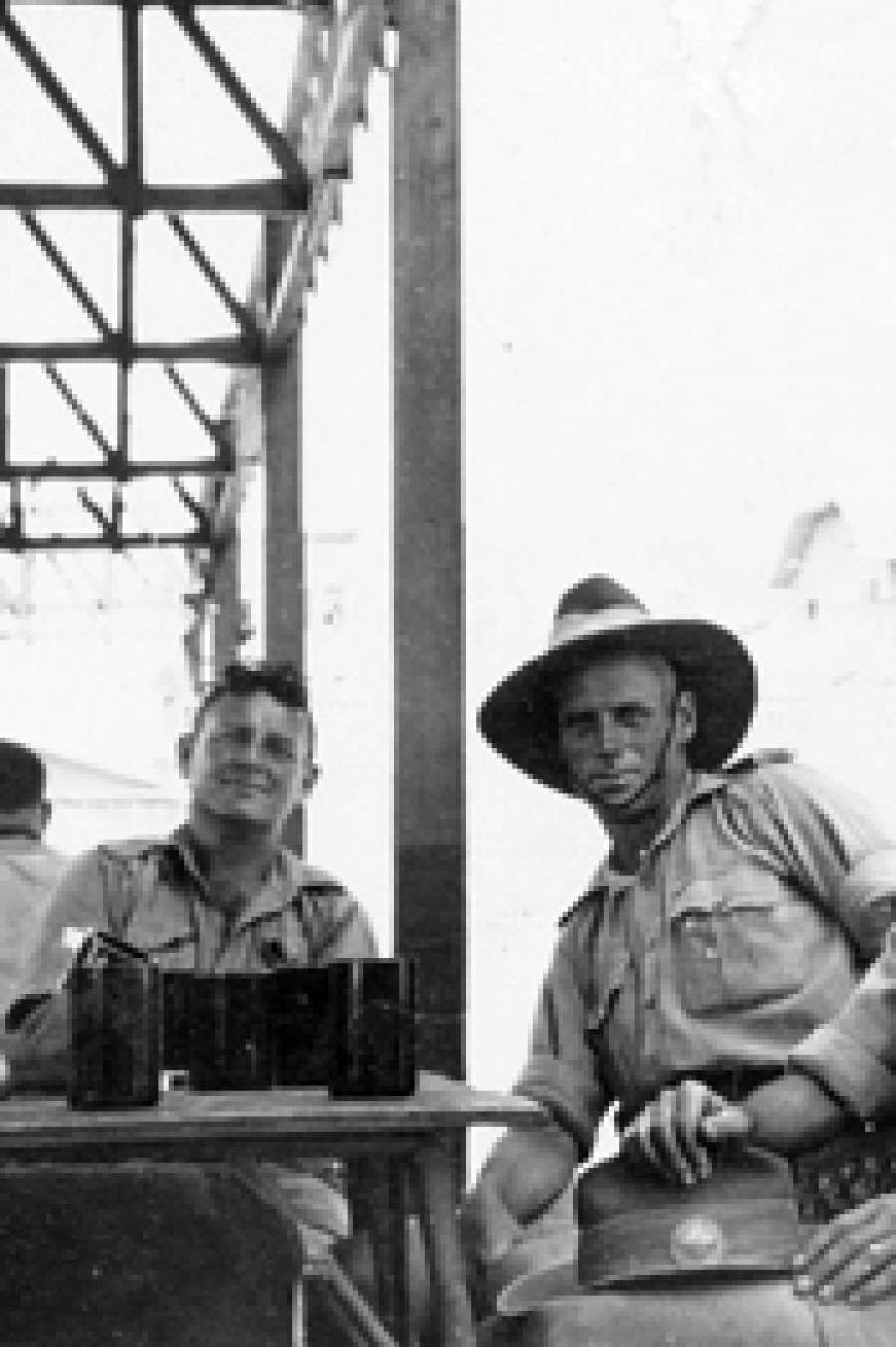
- Free Article: No
- Contents Category: Language
- Review Article: Yes
- Article Title: Slang and the Australian soldier
- Online Only: No
- Book 1 Title: Slang and the Australian Soldier
From the beginning of the war, newspapers printed articles that dissected, defined, and mused on the effects of Australian soldier slang. The first articles to appear in the Australian press that covered the evolution of a new slang were concerned with explaining the military jargon that was appearing to their home-front audience: one newspaper article provided a ‘comprehensive dictionary’ for its readers that defined words such as ‘grenade’, ‘howitzer’, ‘salient’, and ‘shrapnel’. A distinctive Australian soldier slang quickly became the subject of much interest, with ‘Anzac vocabularies’ translating dialogue such as this: ‘No, dinkum oil this time; the boys have imshied the Turks on the right, and got fifty prisoners, who say they have had mafeesh tucker for two days’ (Bathurst Times, 16 May 1916).
Such commentaries frequently linked Australian soldiers’ use of slang to their supposed qualities of humour, irreverence, contempt for authority, and egalitarianism. Along with trench periodicals and magazines produced by and for soldiers – which were often sent home not only for safe keeping but for those at home to read – a deliberate effort was made to shape a distinctive Australian soldier culture, marked by the self-conscious use of slang. Anzacs undoubtedly developed a distinctive slang, and this slang helped to assert an Australian identity: for example, ‘Aussie’ (in the sense of both a place and a person) was first used during the war. But much of their slang was shared by other Anglophone armies and was a response to life in the army, as well as to the new technologies of war and killing (for example, ‘brass hat’, ‘Jack Johnson’, ‘gone West’, ‘over the top’).
 Australian soldiers in Palestine, 1918
Australian soldiers in Palestine, 1918
(photograph held by Queensland State Library)
Slang serves many functions, but one is to include and exclude: those who are not familiar with a particular slang lexicon are marked as not belonging to a particular group or community. For soldiers, slang undoubtedly helped to mark their identity and to establish a sense of community. So what did those at home make of it? To some extent, this interest in slang must be seen as an effort to try and understand something of the experiences of soldiers. But perhaps it spoke of deeper anxieties. ‘He is coming back in his hundreds and his thousands,’ warned one soldier writing in the Perth Sunday Times, ‘and amongst the many changes and marks that war’s rough hand has left upon him you will find that his speech has changed into a weird and wonderful thing’ (9 March 1919). It was left to those at home to find a way to communicate, if they could, with these men. Did they perhaps feel some unease in considering the prospect that their returning soldiers might be speaking a language that they did not understand and that this language would be indicative of the profound transformation some of these men might have gone through?
‘Such commentaries frequently linked Australian soldiers’ use of slang to their supposed qualities of humour, irreverence, contempt for authority, and egalitarianism.’
In the end, soldier slang largely became an artefact, left for recording in dictionaries such as W.H. Downing’s Digger Dialects (1919), and perhaps only used at an occasional veterans’ reunion. The language of soldiers was mostly ephemeral, with some notable exceptions (‘Aussie’, ‘furphy’, ‘king-hit’, and a few others). Some terms would be revived in later wars, and ‘Anzac’ and ‘digger’ would of course remain central, for better or worse, to Australian society and culture.
James Brown’s recent book Anzac’s Long Shadow (2014) criticises the Australian media for not taking a greater interest in the experiences of our recent serving soldiers. One hundred years after the beginning of World War I, it is hard to imagine our press attempting to try and bridge the gap between the professional army and civilian worlds through regularly writing about soldiers’ slang. Yet what do we know of the language of our recent wars, and might it tell us something about the nature of those wars and their effects on the men who fought them?


Comments powered by CComment